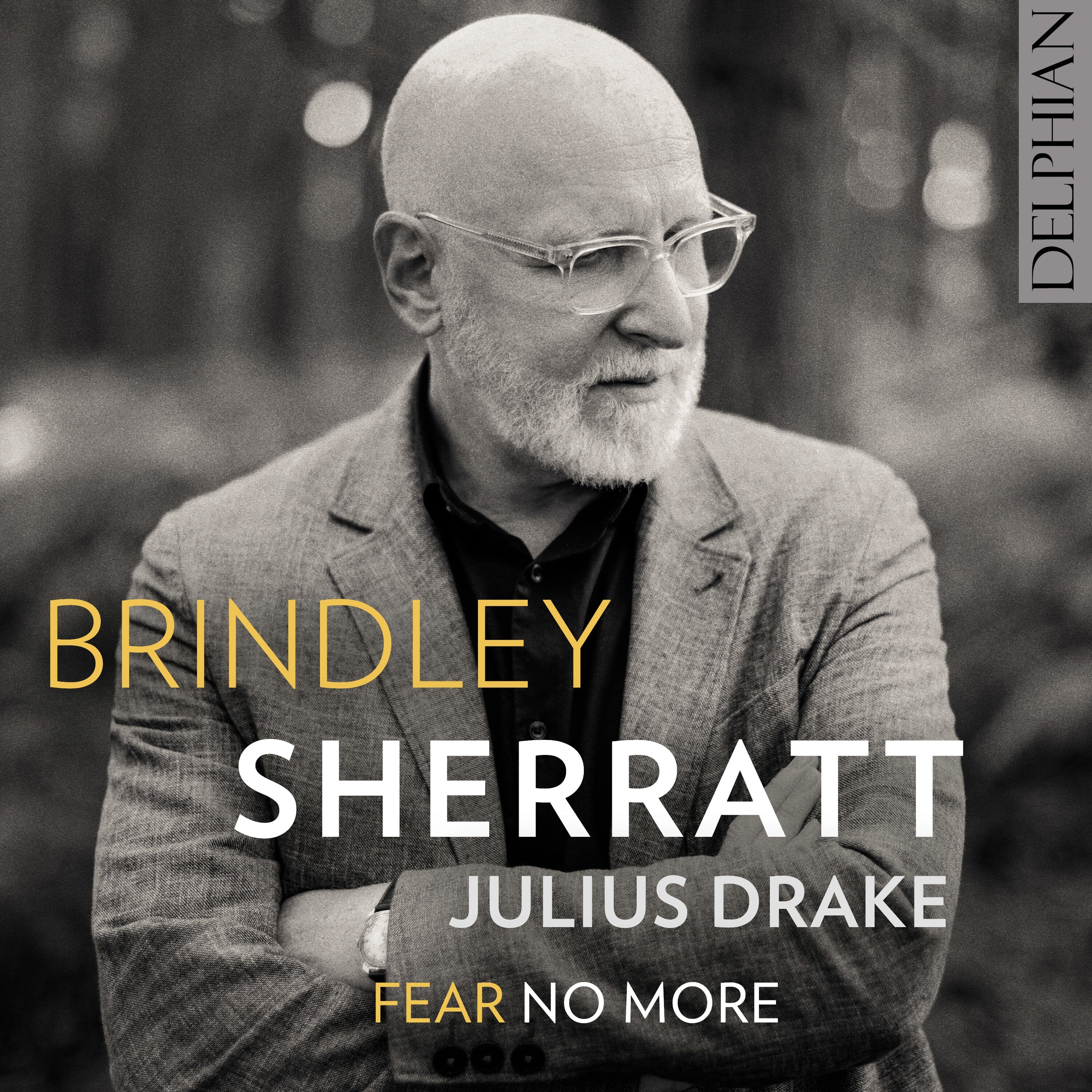Your Cart is Empty
DCD34313-CD
£15.99
Brindley Sherratt’s pre-eminence as an operatic bass is the result of two daring career shifts. Initially trained as a trumpeter, he gave up his first instrument as a student to become a singer. Yet even then, it was only in his mid-thirties that he left the professional security of a position in the BBC Singers to explore the world of opera.
Now, the voyage of discovery continues as Sherratt turns to the intimate medium of the song recital. With the superb pianist Julius Drake as collaborator, in Fear No More Sherratt draws on all of his accumulated technical and expressive wisdom to traverse death-haunted songs by Schubert, Mussorgsky and Richard Strauss before arriving at a final group of five twentieth-century English songs in which consolation and acceptance are the keynotes.
Release Date: 26 April 2024
Catalogue No: DCD34313
Total playing time: 58:20
Recorded on 26-28 March 2023 at Henry Wood Hall, London
Producer/Engineer: Paul Baxter
24-bit digital editing: Jack Davis
24-bit digital mixing & mastering: Paul Baxter
Piano: Steinway model D, serial no 607138 (2017)
Piano technicians: Marcus Dods & Nigel Polmear
Cover photography © Benjamin Ealovega
Session photography & videography: William Coates-Gibson / foxbrushfilms.com
Booklet & traycard design: Eliot Garcia
Booklet editor: John Fallas
Delphian Records Ltd – Edinburgh – UK www.delphianrecords.com
TOP 20
CHORAL & SONG CHOICE
RECORDINGS OF THE YEAR 2024

: PREVIEW
Schubert:Fahrt zum Hades
Collections: All Releases, Editor's Choices, Song
Category: Brindley Sherratt, Editor's Choices, Julius Drake, Song
The veteran bass discusses his diverse career and introduces his debut recital album, 'Fear no more'
Brin in recording sessions image foxbrush.co.uk
This is your first recital album despite being now 20 years into your operatic career. Why have you chosen to record this album now?
My career had a bit of a topsy-turvy' start to it. I started out as a trumpet player before joining the choir at St George's Chapel Windsor, which then led on to me joining the BBC Singers, who I sang with for 13 years. Things started to change when I got my first decent role. Publio in La clemenza di Tito at Covent Garden. After that I just took every day as it came, and never really thought about doing any recitals, still less an album. It wasn't until a colleague of mine introduced me to [pianist] Julius Drake, who really encouraged me to sing and play together.
How has the variety of your musical training influenced where you are now?
I really enjoyed my time with the BBC Singers, an incredible group which I'm so grateful to have been part of for so long. My favourite part about working with ensembles like the Singers was being part of a team, whereas being a soloist in an opera comes with a degree of separation. I now try to bring this community feel to any production I am part ot. The other thing I took from the BBC Singers was how to learn repertoire
extremely quickly, which has come in handy when learning different repertoire at the same time.
What do you like to do when you're not on stage?
I love anything to do with bikes, so I do a lot of cycling. I really enjoy being outside. too. We've just moved into a new house, so we've got a lot
of work to do with the garden, and well be ticking off a lot of bucket list destinations I've always wanted to visit as well including the Isle of Skye. On top of all that, I'm hoping to do some more writing. I've done a few articles about opera and singing and it's something I'm very passionate about. I find it very cathartic.
Have you seen any changes in the opera world since you began? Are there any challenges you have picked up on that younger people are facing entering the industry?
I get messages quite regularly from the younger generation of opera singers expressing their worries about getting work. and to an extent these struggles have always been the same for every generation, but I fear for the long-term future of singers in this country. Opportunities for singers seem to keep getting removed, the ENO situation particularly stirs me up, having sung with them for the best part of 10 years, and like many English singers I cut my teeth there. On top of that many of our great opera companies can no longer afford to tour. Everything appears to be shrinking down, which is disappointing when you look at the value that opera holds in society in nations like Germany. I'd like to get more heavily involved in the issues that British opera faces and to really make a difference if I can. I am lucky to have a profile and I'd like to use it for good
This article originally appeared in the March 2024 issue of Gramophone.
John Ireland's Sea Fever, performed by Brindley Sherratt and Julius Drake during recording sessions in London's Henry Wood Hall ...